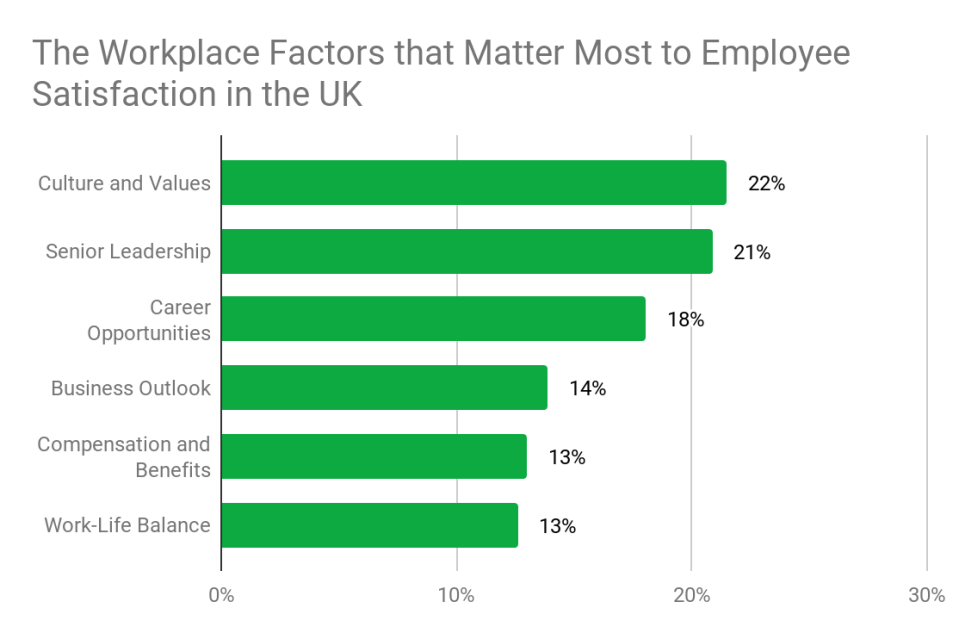Brits want culture over cash at work

More than half of Brits prioritise workplace culture over salary, according to new research.
In a survey of over 1,000 UK workers by Glassdoor, three in five (57%) people said a company’s culture and values are more important than salary when it comes to job satisfaction.
Three quarters (77%) of Brits said they consider a company’s mission and purpose before applying for a job.
Culture over cash
While the majority of UK adults place culture above salary for job satisfaction, company culture matters much more among younger adults.
Two in three millennials place culture above salary when it comes to job satisfaction, compared to just over half (52%) of those above 55-years-old.
This may indicate today’s young adults cannot simply be “bought” — instead, employers need to invest in an attractive culture to attract and retain this crucial demographic.

Company culture is also a critical factor for UK adults applying for a job and deciding whether to stay with a company.
Three quarters of Brits consider a company’s culture before applying for a job, suggesting a negative perception around culture could significantly impact ability to fill open jobs.
What’s more, 69% would not apply to a company unless its values aligned with their personal values.
READ MORE: How to create a good culture for your small business
For companies fighting for talent, this highlights the importance of clearly defining and communicating values, as well as demonstrating they are living up to them.
When it comes to retention, almost two in three employed UK adults (63%) said their company’s culture is one of the main reasons for staying in their job. Seven in 10 respondents said they would look for a new job if that culture were to deteriorate.
Recruiting needs to be mission-minded
In a sign that company mission may be top of mind for job seekers, 78% of Brits believe employers are becoming more mission-driven to recruit and retain talent.
What’s more, nine in 10 (89%) UK workers believe it is important for an employer to have a clear mission and purpose. Just over three quarters, 77%, said they would always consider a company's mission before applying for a job there, demonstrating how important a clear mission is to recruitment.
READ MORE: Do workplace perks really matter?
Six in 10 Brits said their company’s mission is why they stay in their job.
“A compelling mission, culture, and values is critical when it comes to attracting and retaining top talent in a competitive job market — it is what differentiates each and every employer,” according to Christian Sutherland-Wong, president of Glassdoor.
“It’s clear job-seekers are seeking more meaningful workplace experiences — they want to be paid fairly, but they too want to work for a company whose values align with their own and whose mission they can fully get behind,” Sutherland-Wong said.
A key driver of employee satisfaction
Widening the survey to 5,000 people across the UK, the US, France, Germany, and Canada, company culture and values were found to be the strongest predictors of employee satisfaction.
This was followed by quality senior leadership and career opportunities.

 Yahoo Finance
Yahoo Finance 